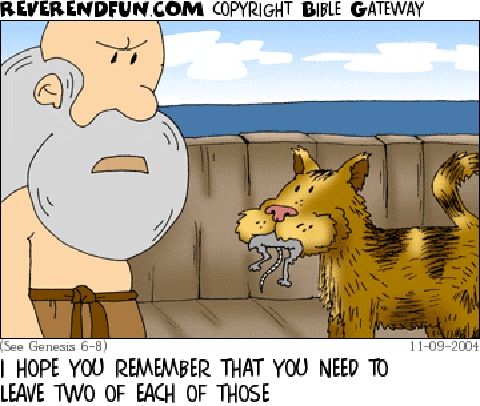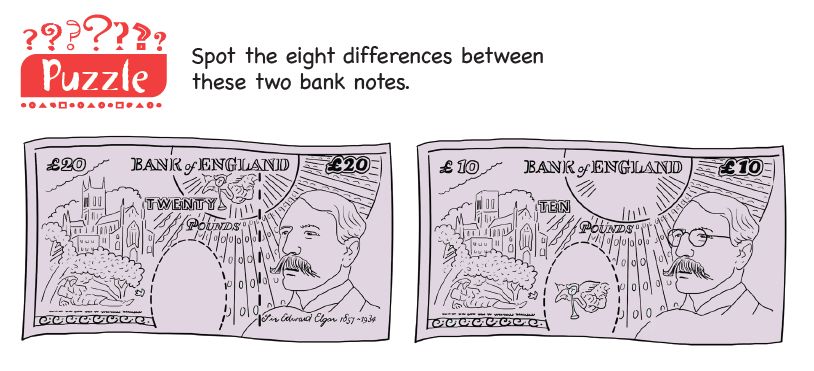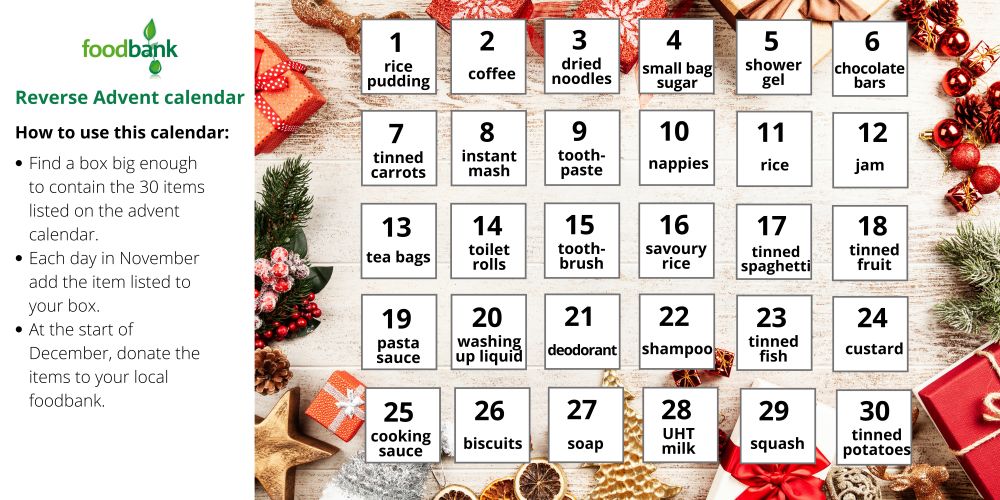
Hello everyone,
Welcome to the latest issue of our church newsletter. I hope you are all keeping well. Our church is open for Sunday services but we will continue to live-stream our services and send out our newsletter regularly for the foreseeable future.
You can find previous issues of the newsletter here. We would love to hear from you and are always looking for uplifting and encouraging content to share in future issues of this newsletter. If you have any ideas or content that we can share, please do email them to Louise (publicity@christchurchuxbridge.org.uk)
We start with our opening prayer:
O God, in the midst of changing seasons, crisper days, and the beauty of autumn,
bless with your love those who work in the NHS –
medics, administrators, cleaners and support staff –
as they face winter with uncertainty.
Enable our political leaders to hear what the NHS has to say,
and give them the humility to respond. Amen.
(Rev’d Andy Braunston who works with four churches in and around Glasgow, from the URC ‘Prayers during the pandemic’)
Reflection from 31 October
Readings: Deuteronomy 6.1-9, Psalm 119.1-8, Hebrews 9.11-14 and Mark 12.28-34
I invite you this morning to think of a door: what does a door need to work? One thing a door needs is two hinges.
What do we need to be a Christian? First there’s the framework that is fixed and that holds the door up. This is like God’s love for us, which is our starting point for living in the Christian way. Secondly, there’s the two commandments that Jesus gives – loving God and loving our neighbour. These are like the two hinges that a door needs.
We are like the door – which can be open or closed, depending on how filled we are with God’s love. But the frame is unchanging – like God’s love.
We continue to live in interesting and challenging times. The Chancellor in the budget this week opened up some positive financial possibilities as we move forward. But there were also questions:
- what about supporting COP26 and the challenges of climate change? Is making short haul flights cheaper the best way to do this?
- What about those who can’t find work and are struggling to look after their families week in week out? Where will they get increased financial support?
- What about tackling the rise of hatred and hate crime? The MP, David Amess, and his sad death, and the fears of other MPs about violence and abuse have brought this to the fore.
The big question is ‘what are the values that undergird our society?’ and how do we as a country move forward in the midst of all the difficulties that face us to find a better place to live?
The role of the Christian faith and the church in this discussion is more important than ever. We need to be continually taken to the heart of the gospel, to who Jesus is, what he said, why he came, and the ways in which he is still with us. The Gospel for today takes us back to the question of which values were the most underlying for Jesus and are still the most significant for us today.
There’s an interesting discussion that goes on between Jesus and a scribe. The scribe sees that there are considerable arguments going on between Jesus and the Pharisees and the Sadducees. Arguments were common then, and it’s not surprising that we still have them today.
There are two immediate topics for these arguments. Firstly, there was the argument between Jesus and the Pharisees about paying taxes – should taxes be paid, or not, and if so, to whom? Who says that religion is only ‘spiritual’ and has got nothing to do with the daily realities of life?! Right from the word go, Jesus was engaging with financial and economic issues. He didn’t always give straightforward answers, but he did challenge the people to think again.
Secondly there was the argument between Jesus and the Sadducees about the resurrection. The Sadducees argued that there was no resurrection. They try and test Jesus with a long story about a woman who takes it in turn to marry 7 brothers, after each one dies. Who’s wife will she be in heaven? Jesus turns to them and says ‘you know neither what the scriptures say, or the power of God’. At this point they are silenced.
Then we come on to the question asked of Jesus by the scribe in today’s Gospel. Scribes were often seen as allied with Pharisees and Sadducees as opponents of Jesus, just trying to argue with him. But here the case seems to be different. The scribe isn’t trying to test Jesus in order to put him down, in the midst of all the debate going on he’s asking a genuine question ‘what is the first commandment?’
This isn’t a conflict story, it’s a real enquiry, about a topic that was often discussed in Jewish circles, ‘What is the most important commandment?’ The discussion arose out of the fact that there were 613 commandments altogether. Was one more important than another? Could some be obeyed, and others set aside? Was there something deeper underlying these commandments?
It’s interesting to see the analysis that has been done of these commandments, as to how many are positive ‘thou shalt…’ and how many are negative ‘though shalt not…’ The negative ones are as many as the days of the year – 365, whereas the positive ones add up to 248.
In the midst of this debate going on, Jesus responds by quoting from Deuteronomy and Leviticus:
“The first is, ‘Hear, O Israel: the Lord our God, the Lord is one; you shall love the Lord your God with all your heart, and with all your soul, and with all your mind, and with all your strength.’ The second is this, ‘You shall love your neighbour as yourself.’ There is no other commandment greater than these.”
The scribe could see the authority of what he was saying, and agreed with him. Jesus praised the scribe, and the encounter ended in harmony, unlike the previous two encounters, with the Pharisees and the Sadducees, where there was a bit of a falling out.
What Jesus was quoting was the Jewish ‘Shema’ – the words that were prayed three times a day in the Jewish community, ‘Hear O Israel, the Lord our God, the Lord is one.’

From this God came the law and the commandments. Before there could be an argument about the details of the 613 commandments, it was important to see this one God underlying all the commandments, and the most basic response to this one God being a response of love – to God and to neighbour and to all of God’s world. What’s at the heart of the faith is not obedience, but love.
Over the centuries there has been a debate from two opposite perspectives about the loving God and the nature of the law. On the one hand, people – from both Jewish and Christian traditions – have argued what is called a ‘rigorist’ view of the law. This means that the underlying affirmation of the one God meant that every law was given in order to help understand how both God and neighbour should be loved. Therefore, the conclusion was drawn, that every law should legalistically be attended to and obeyed. In addition to this there was a long tradition amongst the scribes of debating the interpretation of each law, as it wasn’t always clear what each law meant in succeeding generations.
On the other hand, the argument focused on what was called an ‘antinomian’ view of the law. This view argued that, as what was most important in response to the one God was loving God and loving the neighbour, it didn’t matter about obeying specific laws. The law was sufficiently fulfilled in living in the way of love for God and love for neighbour.
This discussion still continues in different parts of the church today – as some Christians argue for more legalistic rigour, and others for more freedom in the Spirit.
There’s not just a simple answer about obeying every law, or about not being attentive to any law. There was a more complex understanding in terms of digging into what loving God and loving neighbour actually meant. What was significant, is that Jesus was saying that it’s not about either loving God or loving the neighbour. Both need to be held together.
It’s good to have laws, to protect people and to give a society a framework for living. But laws aren’t enough on their own to determine the way to live. It’s possible to legislate against the consequences of hatred, but it’s not possible to legislate against hatred happening. Hatred is a deep-rooted emotion, arising out of a number of driving forces. Unless something else replaces this deep-rooted emotion and addresses the driving forces, hatred will continue.
Jesus teaches that we need to live by love and grace – not in disobedience to the law but going beyond the law, to a life that is richer and deeper than mere legalistic rigorism. The commands to love were for every part of life – heart, soul, mind and strength. It wasn’t enough to give a nod to loving God with the top of the head, and then let the body get on with whatever it wanted. It wasn’t enough to love with the whole heart and ignore the call of reason and law. It wasn’t enough to love with one part of the body and sit lightly to other parts of the body. It wasn’t enough to love one part of the world and ignore other parts of the world. It wasn’t enough to love a bit of creation and disregard the rest.
Growing in love is personal and takes time – in prayer and meditation as we come to know God better, in listening and conversation as we come to know one another better.
From time to time I hear people talking about the path of love as weak and over simple. I’m then reminded that it was the path of God’s love that took Jesus to the cross. It can be much easier to hate than to love. When we hate, we can dismiss people, put people down, disregard people who are different to us and seek allies who are ‘like us’ or ‘on our side’.
When we love, we follow a hard path. We can no longer dismiss people, but instead look for their value, the value that God gives them. We can longer disregard people who are different to us, but instead look to see what they have to offer, the gifts with which God provides for them. We can no longer just focus on those who are ‘like us’ or ‘on our side’, but instead need to reach out to all those who God loves.
Only when we follow the hard path of love can we hope to overturn the treacherous path of hatred, and gain a glimpse of what it is that God in Jesus Christ makes possible for God’s world.
Let us connect again today with the framework of God’s love for us, and live with the two hinges of loving God and loving neighbour, and letting that love be poured out for all people and all of creation. May it be so for us today.
Rev’d Dr Elizabeth Welch
Our readings for this week
Mark 12:38-44 (NIV)
Warning Against the Teachers of the Law
38 As he taught, Jesus said, “Watch out for the teachers of the law. They like to walk around in flowing robes and be greeted with respect in the marketplaces, 39 and have the most important seats in the synagogues and the places of honor at banquets. 40 They devour widows’ houses and for a show make lengthy prayers. These men will be punished most severely.”
The Widow’s Offering
41 Jesus sat down opposite the place where the offerings were put and watched the crowd putting their money into the temple treasury. Many rich people threw in large amounts. 42 But a poor widow came and put in two very small copper coins, worth only a few cents.
43 Calling his disciples to him, Jesus said, “Truly I tell you, this poor widow has put more into the treasury than all the others. 44 They all gave out of their wealth; but she, out of her poverty, put in everything—all she had to live on.”
Further readings from the lectionary this week are as follows:
- 1 Kings 17:8-16
- Psalm 146
- Hebrews 9:24-28
Our worship
We meet at 11am for our Sunday services, which are also live-streamed on our Facebook page. If you wish to view our services online, you can find them at www.facebook.com/christchurchuxbridge. You do not have to be a Facebook user to watch them – our services are publicly viewable. You can also view a recent service on our church website. This week’s service will be led by members of Christ Church. You can find the order of service here.
If you are unable to join us in person or online for our Sunday services, but would like to receive a recording of them on a memory stick to watch at home, please let us know.
Forthcoming services
31 October – Rev’d Elizabeth Welch (URC minister) – communion service
7 November – Christ Church worship group
14 November – Mr Ken Pearce (member of Christ Church) – Remembrance Sunday service (10.50am)
21 November – Christ Church worship group
28 November – Rev’d Dr Jonathan Hustler (Methodist minister) – communion service, 1st Sunday in Advent
5 December – Ms Catherine Wells (Methodist local preacher)
Reverse advent calendar
Several of our church members are joining in with a reverse advent calendar for foodbank, where an item is added to a box each day in November and at the end of the month, the contents are donated to a local foodbank. If you’d like to join in, you find details of items to add to the box throughout November in the picture below:
From the Methodist Circuit
In view of the concern around rising Covid cases, the Circuit would like to recommend and encourage those attending church who have not been vaccinated to wear masks throughout the service and whilst in church and to consider arranging for a vaccination as soon as possible.
Operation Christmas Child – the shoebox appeal
Thank you to all who have responded to this annual scheme for sending the love of God to children overseas – in a packed shoebox. As well as a sharing from those of us who have much with some who have little, the children also receive a book about “The Greatest Gift of All” – Jesus, and the opportunity to learn more. Our shoeboxes will feature in our service this Sunday – although there’s actually still another week left for bringing them in. Please come and celebrate this sharing.
Graham Hinton
Church charity news
Table-top games afternoon – Sunday 28th November
After the service on 28th November there will be a bring and share lunch followed by a table-top games afternoon as a final fundraising activity for HOPE not hate.
You can find more details about our church charity fundraising events and items on our virtual sales table at:
https://christchurchuxbridge.org.uk/activities/churchcharity2020/ To make a donation to our church charity online visit https://uk.virginmoneygiving.com/Hopenothate-Christchurch

Children’s Corner

The Passage – working with homeless people
The Passage, a Christian Charity working with homeless people, is holding a fundraising concert at the Royal Festival Hall on Thursday 25 November on the theme Bohemian Rhapsody, featuring popular works by Dvořák, Mahler and Smetana. For full details and booking information visit https://passage.org.uk/night-under-the-stars-2021/ or telephone 020 75921856.
Praying for other churches
This week we hold the following churches in our prayers:
- North Harrow Methodist
- St Margaret’s & St George’s, Harlesden (URC/Moravian)
Closing prayer
Generous God, make us generous.
Make us generous in joy and generous in love.
Help us to remember what we have done today.
Remind us, every day,
that we need to share our love for you with others,
that we need to give and live generously –
for you are generous God, our God.
Be with each one of us and all whom we love,
this week and always. Amen.
(Taken from Roots)


